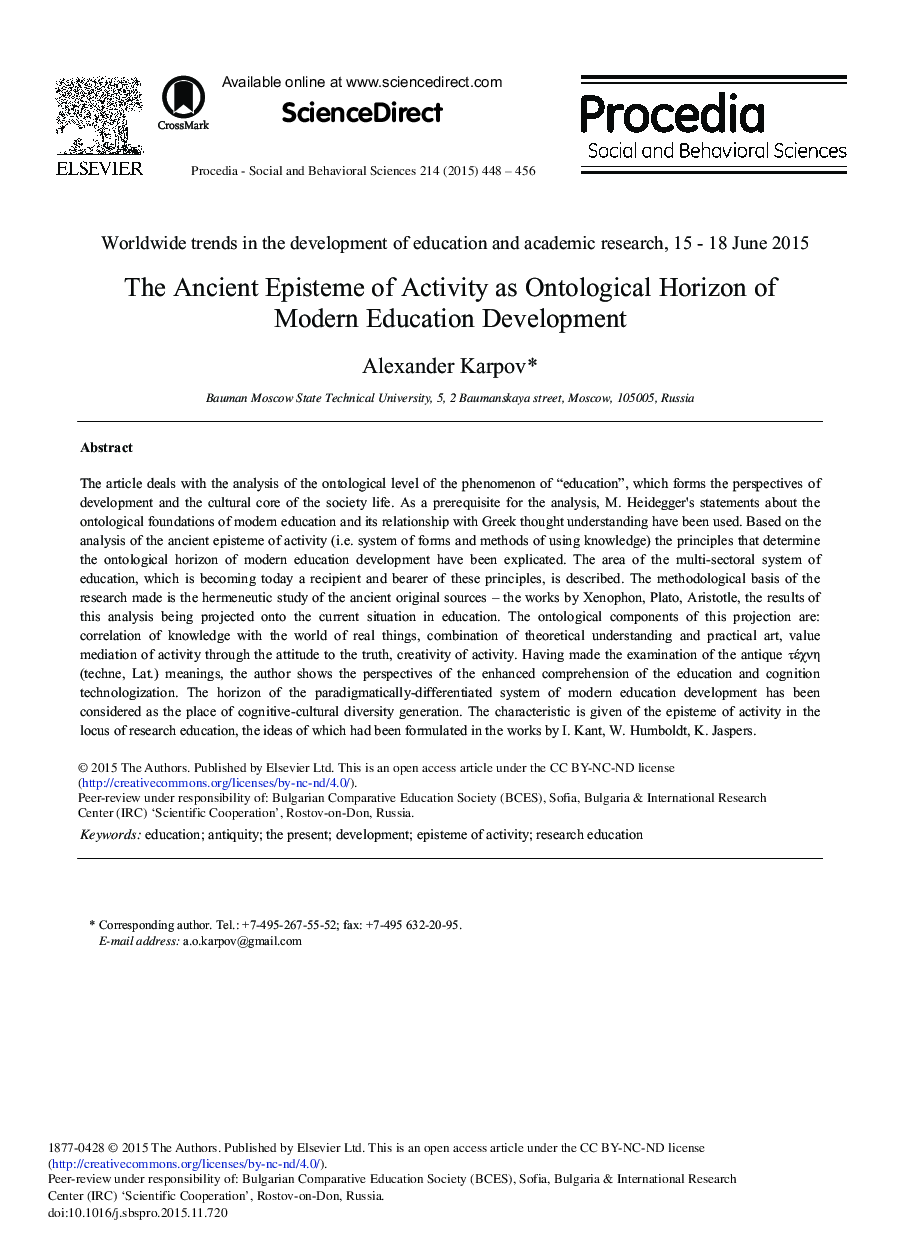| Article ID | Journal | Published Year | Pages | File Type |
|---|---|---|---|---|
| 1107827 | Procedia - Social and Behavioral Sciences | 2015 | 9 Pages |
The article deals with the analysis of the ontological level of the phenomenon of “education”, which forms the perspectives of development and the cultural core of the society life. As a prerequisite for the analysis, M. Heidegger's statements about the ontological foundations of modern education and its relationship with Greek thought understanding have been used. Based on the analysis of the ancient episteme of activity (i.e. system of forms and methods of using knowledge) the principles that determine the ontological horizon of modern education development have been explicated. The area of the multi-sectoral system of education, which is becoming today a recipient and bearer of these principles, is described. The methodological basis of the research made is the hermeneutic study of the ancient original sources – the works by Xenophon, Plato, Aristotle, the results of this analysis being projected onto the current situation in education. The ontological components of this projection are: correlation of knowledge with the world of real things, combination of theoretical understanding and practical art, value mediation of activity through the attitude to the truth, creativity of activity. Having made the examination of the antique τέχνη (techne, Lat.) meanings, the author shows the perspectives of the enhanced comprehension of the education and cognition technologization. The horizon of the paradigmatically-differentiated system of modern education development has been considered as the place of cognitive-cultural diversity generation. The characteristic is given of the episteme of activity in the locus of research education, the ideas of which had been formulated in the works by I. Kant, W. Humboldt, K. Jaspers.
